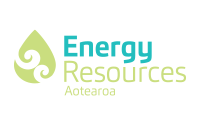Opinion: Act now to avoid the next energy crisis
It's a grim time for businesses and households impacted by soaring energy prices.
Many companies are suffering and cutting production back. If it continues, there will undoubtedly be job losses and higher electricity bills.
The problem is caused by shortages of water in the hydro lakes that generate electricity, and of natural gas which is used directly by industries and as a back-up source of electricity.
In the short term it means that large amounts of coal are literally keeping our lights on with twice the emissions of natural gas. According to energy analyst John Kidd, we are on track to import around two million tonnes of coal this year, and "the carbon footprint of that entire supply chain is horrific".
The prices are also "horrific", according to major energy-using companies. It's a double whammy for our export industries that use natural gas to create products like methanol, steel, dairy, meat and paper.
Relying on our major electricity and gas users to curtail production is neither sustainable in the medium term, or a credible response for a modern first world economy.
While it's not a crisis – yet – alarm bells should most definitely be ringing, and loudly.
How can our major industries have the confidence to innovate and invest in their future, and the future of their local communities, when there is such uncertainty over energy supply and prices? Perhaps we'll only know once they've gone.
This makes no sense at all in an energy-rich country like ours. Questions need to be asked – how will we meet our energy needs in the future? Where will it come from? What happens in the next dry year - or will it be groundhog day?
It is now plain to see that our energy infrastructure is inadequate, and more investment across the entire energy supply range is needed.
Solving the climate problem by banning things is easy, but ensuring an adequate affordable supply for businesses and homes when they need it is much harder.
Wishful thinking about green alternatives or technologies that are decades away just won't cut it.
There is some hope on the horizon as decent rainfall could help get us through this winter.
But in the medium-term, there are serious concerns over the supply of natural gas to bridge the gap to the renewable future we all want.
Local gas producers are investing into major fields and this is good news. But at the same time, nearly all offshore exploration has ended and numerous natural gas companies have left New Zealand to invest where they are more welcome.
This makes us extremely worried over what happens the next time we have a dry year, if we don't have enough local natural gas. Do we really want to keep using expensive imported coal, with higher costs for households and job losses as major industries cut back? Or import LNG from Australia?
If we want to avoid this kind of future, we need to act now. We think it's time for the Government and industry to work together to avoid this scenario, because no amount of regulation will make it rain or discover more gas.
The aim should be ensuring we have a balanced energy system as we transition to lower emissions. Energy has to be affordable and reliable, as well as sustainable.
We think natural gas is an option we shouldn't be closing off when alternatives aren't ready yet. It has half the emissions of coal, is instantly available, and locally produced in New Zealand rather than imported. Any emissions created from using it can be offset by planting trees.
Of course, we would say this as an energy industry group, but it's not just us. Even the Climate Change Commission sees a role for natural gas as an electricity back-up continuing until at least 2050, for all of the advantages listed above.
A Government-industry accord could help achieve this, and the smooth transition we all want. It could be a joint commitment to work together on lowering emissions while ensuring we have reliable and affordable energy at the same time. Issues like skills and training would be an integral element of this.
Now is the time to start work to avoid an even bigger energy crisis in the coming years.
*John Carnegie is the chief executive of Energy Resources Aotearoa, formerly the Petroleum Exploration and Production Association of New Zealand.
*Originally published in the New Zealand Herald on 17th May 2021.
